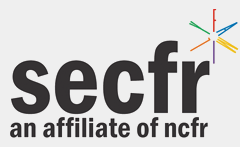Barriers Sex Trafficking Survivors Encounter during the Transition out of Commercial Exploitation
Proposal Focus
Research
Presentation Type
Poster
Abstract
Survivors of sex trafficking report numerous intrapersonal, interpersonal, and contextual challenges which likely play a role in their transition out of commercial sexual exploitation. The purpose of this phenomenological study was to begin investigating survivors’ perceptions of the transition process, namely barriers they encounter along the way. Researchers facilitated semi-structured qualitative interviews with six survivors enrolled in a residential recovery program. Analyses yielded two themes: 1) intrapersonal barriers and 2) service barriers. Intrapersonal barriers included codes such as emotional control, self-perception, addiction, and mental health. Service barriers included codes related to specialized professional support, non-professional support, tangible resources, and intangible resources. This poster will provide an overview of themes and codes, as well as a description of the practical significance of the study results. Findings have important implications for the broader understanding of sex trafficking survivor needs during a particularly vulnerable point in their long-term recovery process.
Keywords
Sex Trafficking, Service Barriers, Qualitative
Location
Cornerstone Ballroom Side B
Start Date
12-4-2019 10:00 AM
End Date
12-4-2019 11:00 AM
Barriers Sex Trafficking Survivors Encounter during the Transition out of Commercial Exploitation
Cornerstone Ballroom Side B
Survivors of sex trafficking report numerous intrapersonal, interpersonal, and contextual challenges which likely play a role in their transition out of commercial sexual exploitation. The purpose of this phenomenological study was to begin investigating survivors’ perceptions of the transition process, namely barriers they encounter along the way. Researchers facilitated semi-structured qualitative interviews with six survivors enrolled in a residential recovery program. Analyses yielded two themes: 1) intrapersonal barriers and 2) service barriers. Intrapersonal barriers included codes such as emotional control, self-perception, addiction, and mental health. Service barriers included codes related to specialized professional support, non-professional support, tangible resources, and intangible resources. This poster will provide an overview of themes and codes, as well as a description of the practical significance of the study results. Findings have important implications for the broader understanding of sex trafficking survivor needs during a particularly vulnerable point in their long-term recovery process.
![Southeastern Council on Family Relations Conference [2018-2020]](/assets/md5images/a0d3661d5139dc9b769a57be6f085156.png)

